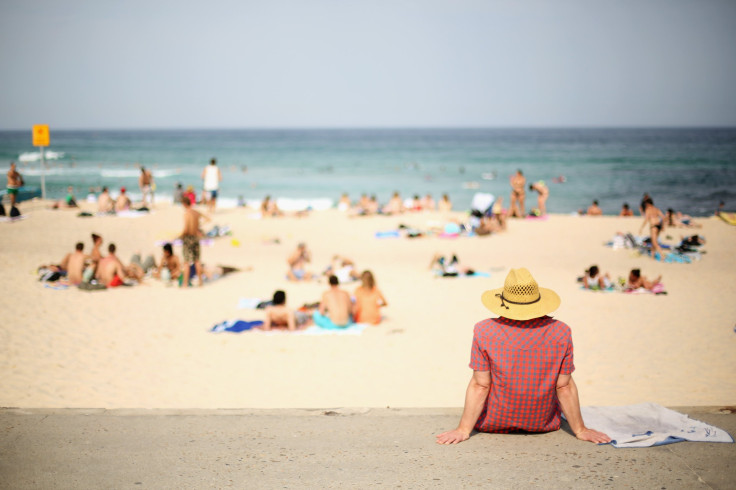Mysterious Alien-Like Sea Creature Spotted On Beach Baffled Woman

An "alien-like" sea creature was found on a beach in the United Kingdom and was later identified as a “buoy barnacle,” an unusual and reportedly rarely-seen crustacean. A woman taking an evening stroll along Saunton Sands, a beach near Devon County in southwest England, spotted the creature.
Fleur Bament told the UK-based news outlet SWNS that she noticed the strange-looking creature but wasn’t sure what it was. She was baffled by its mysterious pale-blue appearance and posted photos on a Facebook group in the hopes someone could help her identify it.
Buoy barnacle, scientifically known as Dosima fascicularis, are crustaceans — related to crabs, lobsters, and shrimps. Typically found on rocky shores, buoy barnacles, which were first discovered in 1786, are “commonly found in small numbers attached to small floating objects,” but “can also be washed ashore in large groups attached to the same object,” according to the Marine Life Information Network.
“The buoy barnacle is at home in the warmer waters of the Atlantic and Pacific Oceans but is sometimes stranded in large numbers along the western coasts of Britain and Ireland after south-westerly winds,” the network adds.
One user said the mysterious sea-creature "looks like something from 'Alien,'" appearing to reference the hit 1979 film. "Fascinating!" the person added.
In February, a fisherman was baffled to see a mysterious sea creature hooked on to his fishing line at Australia’s Top End. The man was at Shady Camp, in the northern territory when he came across the purple creepy-looking fish. Several social media users commented on the post, saying it could be a fish, with some saying its body resembled an eel or a snake.
In January, experts were surprised to see photos of a mysterious "blob-like alien" sea creature that washed up on the shores of Durras Beach in Australia's New South Wales. The creature, with a yellow hue and three segments, drew comparisons to several things including jellyfish.
© Copyright IBTimes 2025. All rights reserved.





















